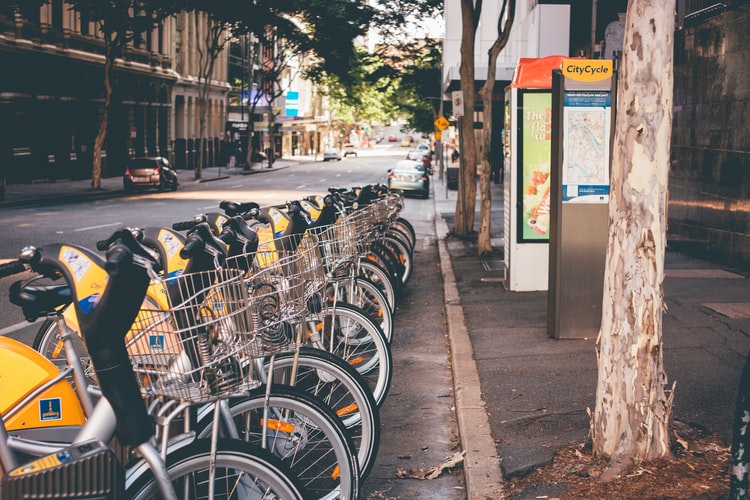What makes an eco-friendly holiday?
So, you’d like to choose more sustainable holidays. You know a bit about eco-tourism, and responsible travel… but how can you ensure that your booking and travelling choices make a real difference?
Sustainable tourism isn’t just about reducing plastic straws. It is a mindset and a practical approach which looks at the range of issues and opportunities facing destinations, the wider planet and the life it sustains. As responsible travel companies and travellers, we not only avoid worsening existing issues, but also aim to make a positive impact wherever possible.
To help you understand what this means in practice, we’ve put together a comprehensive guide for you to start your journey into sustainable travel… We promise you won’t look back.
1. What is sustainable travel?
2. How to find sustainable travel companies
3. How to be a responsible traveller

Everything you do…should focus on this question: “Is this in the best interest of the people who live in this destination?”
JoAnna Haughen – Rooted Storytelling
Sustainable travel, green holidays, ecotourism, regenerative tourism…
What do the terms really mean?
Most sustainability professionals and eco-tourism organizations agree that, although the specifics might differ between exact terms, the basics of good tourism practices remain the same regardless of what we call them.
We’ll first look at what these terms mean and some sustainable tourism examples, before explaining what to look out for from a sustainable holiday company and the individual actions you can incorporate into your next green holiday.
Principles of Sustainable Travel:
Regardless of what exactly we call it, responsible, regenerative or sustainable tourism is often defined using three “pillars”:
- Social Impacts
- Economic Benefits
- Environmental sustainability
Each point contains many smaller issues, all of which interlink with one another too. At every level there are actions that the travel industry can take, but also things that you as a visitor can do to improve your positive impact.

Social Impacts of Sustainable Travel:
The social benefits of community-based sustainable travel are often overlooked, but can make a significant impact both at home and away. From the travel industry’s perspective, it starts with involving local people as stakeholders in our research activities when planning new trips, tours, routes or new hotels.
When we do so, we gain more perspective on where we need to lighten our footprint, and where more positive attention could help.
Including local projects with a social aim
In most areas of the world, certain groups of people are marginalised or struggle to access equal opportunities. To raise awareness among guests and help combat this social issue in a destination, a travel company could choose to direct guests towards businesses or projects owned or run by members of that group. More customers provide more opportunities for these owners/employees, and raise the visibility of the project or issue.
Support for locally run initiatives also improves relationships between local people and tourists. When you hear some of the struggles facing people and places, you are able to relate to the destination on a more nuanced level. Your visit also has a wider impact – you might go home and look to support a similar project where you live – or even start one yourself!

Minimising over-tourism
In another example, a social concern relating to tourism requires the opposite approach. In destinations all over the world, local people feel they are “losing” parts of their city to tourists and the best action to take is to avoid worsening the issue, and to encourage guests to do the same.
We can actively choose to direct our guests elsewhere while they visit. We can book sustainable accommodation a little further out, we can encourage tourists to visit off-peak and even recommend alternative destinations. In doing so we recognise, take responsibility for and communicate the social impact that our tourism activities can have.
Economic Benefits
The economic benefits of responsible tourism are linked to social impacts. On the simplest level, it’s clear that booking an independent hotel instead of a larger chain ensures that more money goes into the pockets of the destination. This sustains jobs, generates local tax income and stimulates the local economy.

Going even further, travel companies can work with our independent partners to improve local opportunities. We can ask where their produce comes from, to see where else our customers’ money might end up. Are the souvenirs that they sell mass-produced overseas? Would there be an opportunity to instead sell souvenirs made locally? What obstacles might that bring up? By asking questions like this we can find ways to improve not only guests’ experience, but also the economic opportunities for the partner and their destination.
Sustainable options have to be viable on an local economic level to provide people with real alternatives. This is why the economic argument is key to the success of responsible tourism.
Environmental Sustainability
At the end of the day, even green holidays will become impossible if our destinations themselves are at risk. Environmental factors also have an impact on the social and economic factors discussed – extreme weather, climate change and loss of habitats all lead to agricultural issues and lower yields, less export potential, fewer tourists and a greater social and economic costs for society.

For these reasons it’s crucial that we dramatically cut carbon emissions, reduce waste and reverse the loss of habitats. As an industry, we have to tackle this head on – starting with the two biggest issues we face – carbon emissions from flying, and food/energy wastage from hospitality.
As a business, No Fly Travel Club has committed to going totally flight-free, as well as taking steps to build our business on an ethical foundation. We believe that providing amazing low-carbon travel options is one of the key steps we need to take to reduce our dependence on fossil fuels.
We also work with accommodation and activity providers who are already working to minimise waste, human impact on the environment and carbon emissions. Together we aim to improve year on year.

What should I look for in an environmentally-friendly travel company?
The examples above give you an idea of just a few things that truly responsible holiday companies could be (and are!) doing, but there are some general pointers to look out for too.
Read into simplistic messaging
It’s nice to hear that you’re doing good for the planet: we all like to feel we’re making a difference. However, the truth about sustainability is that it’s often complicated. When you see slogans telling you that your trip is “carbon neutral” or “good for the planet”, it’s a good idea to dig into what that actually means.
If your holiday company is carbon offsetting, do they provide details about the offsetting scheme they use? Do they do anything else besides offsetting? While it’s better than nothing, offsetting isn’t a fix-all solution – and at its worst it can be downright harmful to the environment. Learn more about responsible offsetting from our friends at Mossy Earth.
If the messaging around sustainability is restricted to a couple of lines, it could be a red flag. Ideally, look for companies who provide an in-depth overview of what goals they have set and the actions they are taking on each of the 3 areas above.
At a minimum we can expect sustainable companies to reduce the waste and carbon emissions that their office activity produces. If a travel company can’t commit to this on an individual level, that raises some questions about their wider sustainability concerns!
What do their employees and customers think?
Part of being responsible is looking after your own people – whether that’s suppliers, customers or employees. Look for organisations with good employee ratings on Glassdoor and who have a good reviews and recommendations from other customers. Everyone gets a bad review from time to time, but if the same complaints keep coming up it’s worth taking notice.
Do they talk responsibly about destinations?

Travel companies who are serious about respecting the planet and its people will reflect this in their communications.
Look out for locally based experiences which provide economic opportunities for your destinations – for example the chance to learn from local guides during a tour. If the company provides opportunities to support independent businesses, social enterprises or local projects, even better! Ensure that where local people are featured, they are treated with respect and not as props for marketing a trip or destination.
While Covid-19 continues to be a feature of our world, it’s also important that responsible travel companies take time to address the safety of their trips, not just for travellers but also for those who live in-destination as a priority.
Avoid companies who promote anything which could constitute exploitation – examples could include animal rides, paid-for voluntourism “opportunities” or “cultural visits” which mock or belittles local customs and traditions.
How Can You Be A More Responsible Tourist?
Choosing sustainable holidays doesn’t just mean booking 5* eco-lodges and exclusive retreats – in fact, many of the most impactful choices you can make don’t come with an obvious “eco-friendly” label. Many of the most significant differences that you can make come from how you approach your own travels. How you travel, spend your money and engage with local people all make a huge difference to the environmental, economic and social impact you have while away.
Three easy tips for being a more conscious guest:
1. Reduce the number of flights you take, and opt for low-carbon transport:
You’ve heard of flight-shame – it’s not without good reason: One way to immediately take a chunk out of your carbon footprint is to cut down on how much you fly. 40% of UK travellers say they’d like to do just that.
In recent years we’ve got used to low cost flights and being able to hop easily between countries. However, did you know that in the UK aviation emissions constitute 7% of our total carbon emissions? The good news is that 58% of our flights are either domestic or short-haul (3 hours or less), which means that we don’t have to stop travelling in order to cut our emissions. By choosing slower, low-carbon means of transport, we can shift our habits towards travel that is much less impactful.

Not inspired yet by the idea of overland travel? Have a look at some of our flight-free trips and we’re sure you’ll change your mind.
2. Book directly – or with an operator who will.
When you book with a local hotel or B&B, you’d like them to keep as much of your money as possible, right? Unfortunately when booking through third parties a significant chunk of your investment can get siphoned off towards tech companies or middle-men.
If you want to avoid this, simply use third party sights to do your research, and then head to the hotel’s website to book online or by email directly with them. You won’t pay any more, but your host will keep far more of the income.
If you prefer to book with an operator or agent, look for those who commit to direct booking wherever possible, ensuring your money stays in the local economy.
3. Support local guides and businesses
A great way to gain deeper perspective on destinations is to hire a local guide, or join a small group tour – particularly one with an interest in responsible tourism. Talking to guides gives you a local perspective through which to view your destination.
Don’t be afraid to ask questions – not only to gain more information, but also to understand more about day to day life in the place you’re visiting. You could ask if tourism has had any negative side-effects, or whether the regions suffers as a result of climate change.
You can also ask guides to point you in the direction of locally owned restaurants, shops or non-profit projects. This allows you to make more informed choices about how and where you spend your money.
In all of our trips, we include local activities with guides who understand responsible tourism. This enables you to come away with a deeper understanding of your destination, as well as directing your money towards local causes. Learn more about what to expect from our trips here.

Key takeaways for travelling responsibly:
The principles behind sustainable travel aren’t restricted to one action or motive, they are an interconnected set of considerations that form the basis of our decisions.
Responsible travel companies should use these as the foundation for how we set up our business, what we include in trips, how we choose suppliers and how we market ourselves.
As a traveller, knowing what to look out for makes it easier to choose sustainable holidays from companies that truly care about being both safe and sustainable.
However, there are also a number of things you can do individually to create more positive impact while you’re away. Reducing flights, directing more money to the local economy and engaging with local people are all great ways to put your values into action. Happy travelling!
Want to find out more about our responsible values? Learn more about No Fly Travel Club here, or take a look at our Sustainability Manifesto to read about our goals and how we plan to achieve them.
You might also be interested in…



Pingback: How effective is carbon offsetting? What to look for | No Fly Travel Club